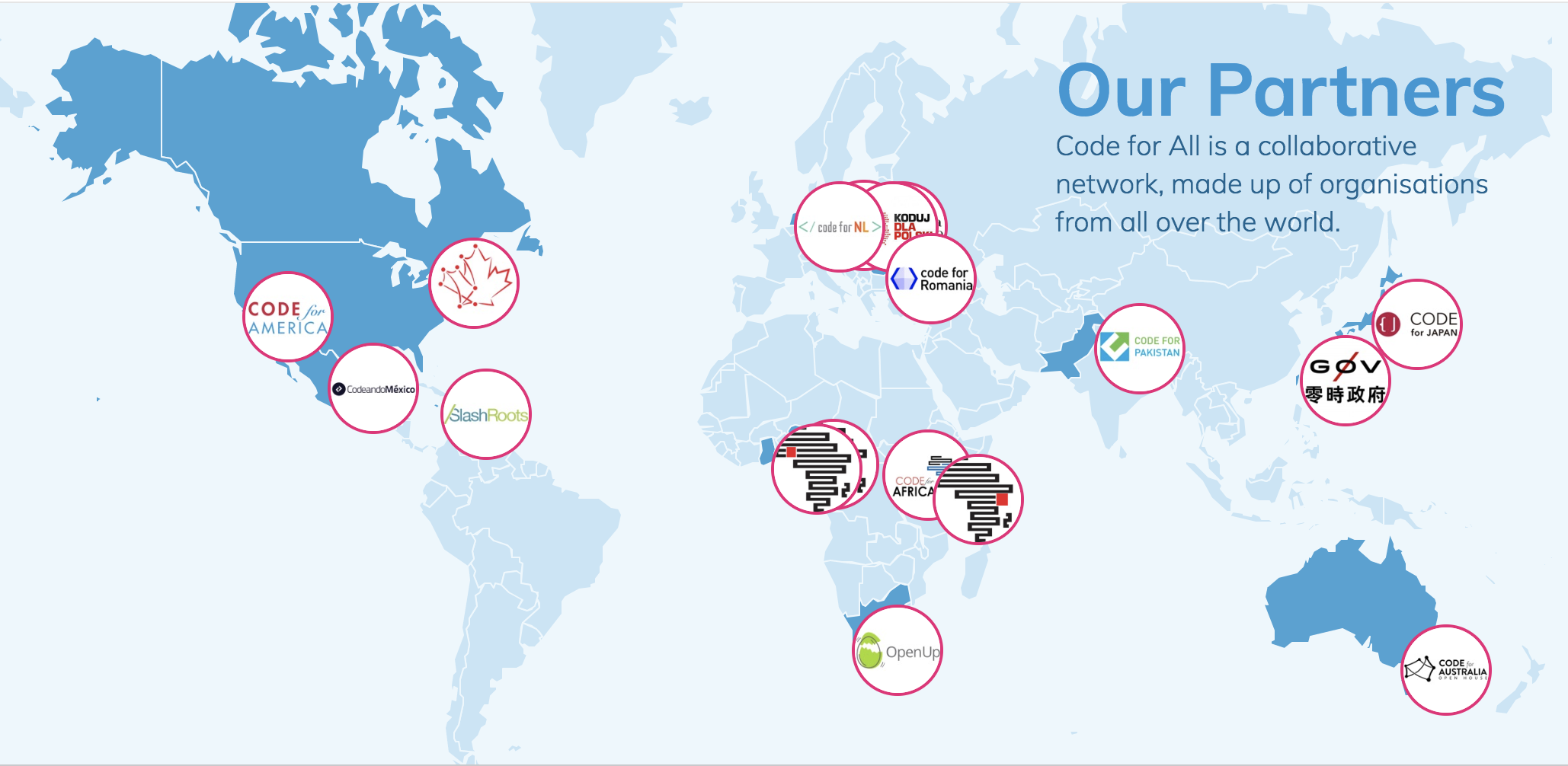Civic technologists - stop using the word ‘solve’ dammit
I get it. You have super skills. You’re an enterprise programmer, data analyst, industrial designer or some other top-end professional. You want to give back. You could donate money or spend time in a soup kitchen; both worthy contributions. Why not rather use your much sought-after skills? After all, you get paid top dollar for your time in the private sector — surely your after-work hours are worth just as much?!
Welcome to the worldwide civic tech movement. The social justice, non-profit journalism, accountability and human rights sectors sorely need technical skills. From what I’ve seen, those in the nonprofit world are still naming MS Word documents like this:
- Report - Final.docx,
- Report - Final2.docx.
- Report - Final2 + AE.docx
- Report - Really Final.docx
- Report - Really Final2.docx
They’re still using MS Office 2010 and relying on a workflow that dates back to the late ’90s. In the modern information-driven world, they need your help.
Still, as a tech expert, you need some perspective on where you fit in the value chain. Throughout my career, I’ve heard so many software developers talk about creating “solutions” to “solve” complex problems like low voter turnout, corruption, health crises, and everything else that is wrong with the world. As a former programmer, I remember thinking that I was able to solve any problem using software. These days, I cringe at that kind of arrogance.
Unlike writing code, the world is a complex place, not least of all because there is the messy business of dealing with people —“wetware” in developer parlance. Technology can help you do what was previously difficult or even impossible. Unfortunately, it is only a small part of a larger process, and ultimately I think it’s irresponsible for tech experts to talk about leveraging technology to “solve” certain problems, as though a particular technological tool is all that is needed to do so.
Let me explain using a real example from my own work running OpenUp, a data journalism and civic technology initiative in South Africa.
Working to “solve” the lack of participation in democracy
South African citizens typically don’t interact with elected representatives, especially at the national level. Most people don’t know who represents them in Parliament, much less how to contact them.
In this context, how do we promote citizen engagement and build a more active citizenry and a more vibrant democracy? While not necessarily intractable, the challenge is vast and a single intervention almost certainly will not have widespread, long-lasting systemic change.
Let’s try anyway…
In order to tackle some of these issues, OpenUp ran a relatively small experiment in partnership with the Parliamentary Monitoring Group, a non-profit organisation which tracks activities by South Africa’s Parliament. At the time of writing, a parliamentary committee is debating whether or not political parties should disclose the sources of private funds, a practice which is currently unregulated in South Africa. Given the overall lack of civic engagement in South Africa, how could we help members of Parliament get feedback from citizens on this issue?
Technology is expensive and our internal mantra is to always look for the cheapest and simplest tool that could be used to achieve our goal. After considering various approaches, we decided to run a four-question survey via Google Forms, collect the results and share our analysis with the parliamentary committee as input for their deliberations. We contacted Media24, the largest online news platform in Africa, and asked whether they would be interested in hosting the poll.
Implementation: Google Forms
For those who have never used it, Google Forms provides a simple graphical interface for users to create and publish surveys. The tool is so simple that we insisted that our non-technological partner build it themselves so that they gain experience in doing this sort of thing., Within 30 minutes on a Friday afternoon, we saw our questionnaire go live on the News24 website.
The poll included the following questions:
- Should political party funding be regulated?
- Should parties be allowed to receive funding from foreign sources?
- Should funding by individuals or organisations be limited in any particular year?
- Should parties receive additional funding from the state?
Crunching the response
Over the weekend we received 1,800 responses. Not a massive number, but certainly enough to get a picture of what News24 readers think. After we analyzed the responses and shared our analysis with Parliament, the subsequent debate actually resulted in one of the parties backing down from a particular position, given the overwhelming response to one of the questions.
Overall, the approach we took – which other civil society, journalism and tech organisations could easily adapt – could be summarised as follows:
- Identify an important issue and create a simple poll, publishing it alongside some educational material.
- Publish the poll on a national news platform.
- Collect and analyze the information.
- Submit the results to Parliament.
- Receive feedback from Parliament and publish the results on the same news platform, so that readers can see how their participation in the poll ended up influencing their elected officials – democracy in action! (Unfortunately, we ultimately weren’t able to do this due to logistical issues, but it’s nonetheless an extremely important step).
When considering a problem like lack of civic engagement in a democracy, this kind of approach has two major benefits:
- The parliamentary committee receives direct input from the public when debating a niche policy issue, something which happens rarely.
- Individual citizens learn about the goings-on in Parliament, and get to feel that their contribution was important.
Yes, there are many flaws and limits to this approach — it’s not as though we’re following the most rigorous survey methodology. Still, let’s ignore those shortcomings for the purpose of this article.
The role of tech in tackling complex social problems
Consider the role of technology in this workflow — literally the only technological tool we used was Google Forms. Could we have collected 1,800 responses from across South Africa at almost zero cost over a weekend without using technology? Almost certainly not. Was the technological “solution” (aka, Google Forms) enough in itself to “solve” the problem we were trying to address (aka, South Africa’s low rate of civic engagement)? Not by a long shot. There are so many other, more “human” factors that you need in order to ensure that your technological “solution” actually accomplishes what you want it to. In this case:
We needed human expertise about what was happening in Parliament in order to frame the questions in the most relevant way possible. We needed some form of relationship with the parliamentary committee in order to submit the survey answers. We needed a relationship with a media partner in order to publish the survey. The survey results needed analysis. Readers need to receive some form of feedback on how their survey responses were used, order to show them that even this small contribution is valuable.
Tech is not the solution
Here is a hard-won lesson for tech experts: you can’t build some technological tool, throw it over the wall and expect some civil society organisation or government department to be grateful for your contribution. There is so much more to a social problem than technology alone.
Hackathons can sometimes be the epitome of programmer arrogance. Pizza, beer, a bunch of hackers, and 24 hours of straight coding can’t stop the TB epidemic, ensure that children have quality education, or fix the inefficiencies in government.
To be sure, tech skills are sorely needed. We need tech experts, civil society groups, journalists and others to work increasingly in tandem to tackle the world’s most pressing social problems. But you’re going to need a strategic combination of software and “wetware” approaches — no matter how sophisticated or simple the tool, technology alone isn’t enough to “solve” anything.



